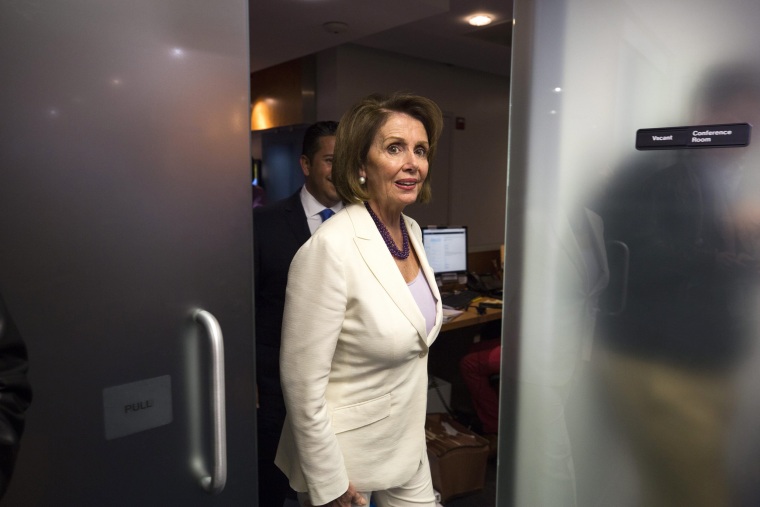House Democrats Tuesday persuaded Minority Leader Nancy Pelosi to agree to a nearly two-week delay in holding leadership elections for next year -- a move that reflects discontent among party members after a bruising election defeat and one that could allow opposition to Pelosi to emerge.
The decision to delay the selection of party leaders until November 30 comes after an election which resulted in GOP control of the White House and both chambers of Congress. In the House, the Democrats picked up just five seats as of now, a far lower number than expected. It’s also the fourth consecutive election that Democrats have remained in the minority under the leadership of Pelosi, a former House Speaker.
While Pelosi appears to have the support of her caucus overall, many members want to slow down and discuss the election results and what the party has done wrong to lose so soundly - especially among working class voters that the party thought it spoke to. The leadership vote was originally slated to take place on Wednesday.
And a lengthy delay could give time for a significant challenger to arise. One possible name that has been floated is Rep. Tim Ryan of Ohio, who has not ruled out a potential challenge. Ryan notes that Democrats have lost 5 House seats in his state in the past few elections and has asked "who is the leader" who can go into red states and "pull those voters back" after Trump won overwhelmingly among white working class voters.
"We're all re-evaluating right now," Ryan said. "If we don't get working people back then we will never get the majority back."
Rep Elijah Cummings of Maryland agreed that introspection is needed, calling on Democrats to conduct an "autopsy of what went wrong."
Rep. Seth Moulton of Massachusetts said the delay "will allow us to have these conversations."
"This is a message to our constituents – saying we have heard you - we have clearly missed the mark in regards to legislation and messaging and we are going to work on this to make sure we are an effective caucus to put up opposition to Donald Trump and make sure he is only a one term president," Moulton added.
Related: Republicans Nominate Paul Ryan to be Speaker of the House
Some Democrats say their message isn’t being heard. They are perplexed why Donald Trump won among voters who want jobs and infrastructure and opposed to the Trans Pacific Partnership trade deal.
"We need to be talking about how we better communicate with the American people," said Rep. G.K. Butterfield of North Carolina said. "We got a shellacking last Tuesday, we got an unexpected defeat and we’ve got to recalibrate and decide how we go forward."
But Rep. Dan Kildee of Michigan cautioned members from being over-analytic.
"So the question I think for us is we have to be careful not to over read what happened – our focus ought to be on going forward," he said.
Pelosi told the caucus Tuesday morning, "We have to make sure that the public knows that we are speaking for them. We have to make the contrast between Donald Trump. Where we can find any common ground, we should try – we have a responsibility to do that, but not to anoint, not to anoint something that does not represent our values."


